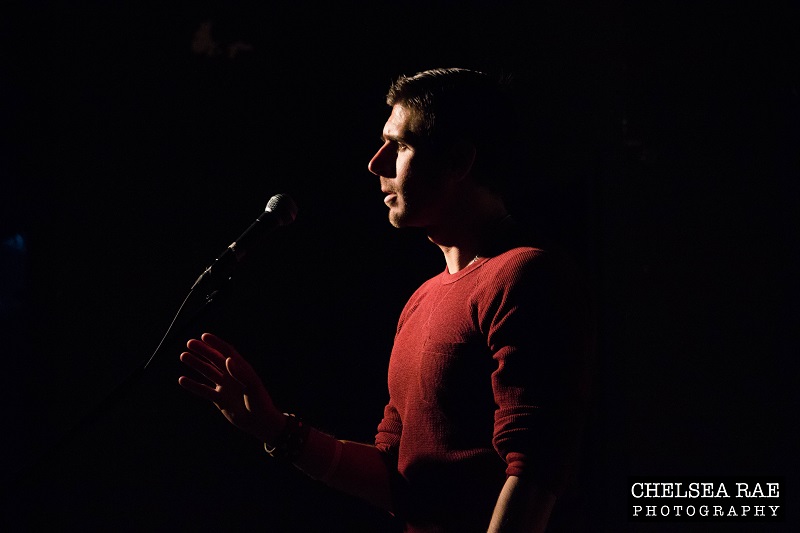
Photo: Chelsea Rae Photography from Ontario
Carlos delivers the closing keynote to a gathering of CEOs in McLean, VA (2016).
Renown poet Carlos Andrés Gómez was born to perform. He’d been writing poetry since high school, but he didn’t start writing and performing full-time until after he was cast in Spike Lee’s Inside Man. Today, Gómez has the kind of charisma and energy that belongs front and center.
“I would describe my performance style as an intensely present, multi-genre experience in which the venue is converted into a radical space for profound empathy and connection,” Gómez says.
When Gómez performs and recites his poetry, he’s talking about a number of topics—race, gender roles, other people’s perceptions of him, and even current events. He finds that he is usually inspired by the simpler things in life.
“The deep silences and the overlooked moments are my greatest wells of inspiration,” says Gómez.
He hopes that when people see him perform, they are opening themselves up to think and feel in a deeper way. If he can challenge people to dig deep within themselves and view the world in all of its complexities, he’s done his job.
“The most rewarding part of what I do is the places and people I encounter because of it,” he says. “My favorite part about writing poetry is that my job description is mining the depths of the human spirit—in all of its fragile, resilient, frightening, and complicated beauty.”
Over the course of his career as a performer, Gómez has shared his poetry with people from countries all over the world—Australia, Cambodia, Canada, Indonesia, Ireland, and South Africa, to name a few. He has also given lectures and performances at more than 500 colleges and universities across the United States. In addition to delivering keynote addresses on diversity and inclusion to C-Suite executives, Gómez has even performed at the White House.
In 2012, Gómez released his memoir Man Up: Reimagining Modern Manhood, which further explores masculinity—who he was expected to be while growing up and who he has become.
“It’s basically a manifesto that seeks to challenge and dismantle the toxic and limiting notions associated with manhood,” says Gómez.
For more information about Carlos Andrés Gómez, click here.


